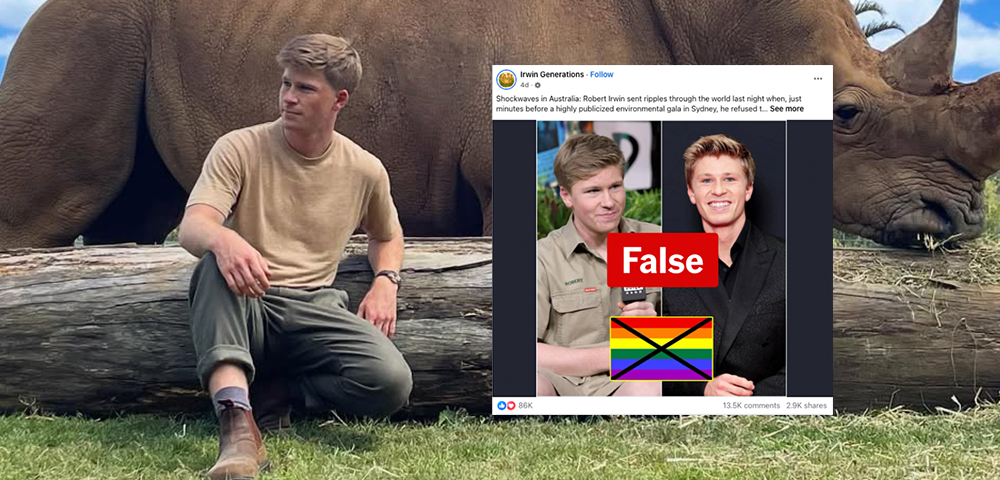
Gender, sexuality and the marriage debate
Judith Butler is one of the most important philosophers and social critics working today. Her work has had a major impact on feminist and queer theory, and has recently extended to question US state violence and the war in Iraq. Butler, who has been described as an academic superstar, came to prominence in the early 1990s with her influential book Gender Trouble where she challenged traditional notions of gender as a fixed identity. Instead she described gender as a performance: There is no gender identity behind the expressions of gender; -¦ identity is performatively constituted by the very -˜expressions’ that are said to be its results. She currently teaches at the University of California Berkeley and her latest book is Undoing Gender.
Kane Race: In Undoing Gender you offer a description of your younger self as a bar dyke who read Hegel by day and watched drag in gay bars by night. You wrote Gender Trouble at this time, in which you developed your influential theory of performativity, concerning the malleability of gender norms. You have also written about the possibility of new kinship relations. Could you comment on the relationship between your work and thought and the lived practice of gender and sexuality?
JB: It is my sense that the people on whom we depend for basic sustenance, who are there for us at times of illness or at times of celebration, are really kin. Sometimes these relations are called friendship, and they are that as well, but there are relations that tend to the material reproduction of life, and they are not always within a conjugal frame.
KR: More recently you have turned to questions of human persistence and survival, including a consideration of human rights and the desire for recognition, for example in the case of gay marriage. How do these different projects connect up for you, and what sort of politics do they yield?
JB: I love the idea that the problem of persistence only became an issue for me recently! I suspect it has probably been a problem all along. Surely, since the inception of AIDS and the stigma that still attends to the illness, there were many people who died who could not be publicly mourned. This prohibition on public mourning also now pertains to the war dead in the U.S., so I’ve been hoping that it might be possible to expand an understanding of the importance of public grieving from gay/lesbian to international politics. For the most part, the move toward gay marriage has been a deflection both from the continuing suffering from illness, especially now in Africa, and the social violence that queer people suffer all over the globe. So I’m hoping for new priorities.
KR: Larry Kramer recently made some pretty disparaging remarks about the -˜gobbledygook of gender studies and queer theory’. How does one respond to this? Is theory, as it is currently practiced, well-suited to the cut and thrust of politics? You have written that -˜Theory is an activity that does not remain restricted to the academy. It takes place every time a possibility is imagined, a collective self-reflection takes place, a dispute over values, priorities, and language emerges.’
JB: It would seem to me that Larry Kramer has an idea of what clear and communicable language should be, what meaningful reflection ought to be, and how pedagogy ought to be conducted. So to answer your question, one would have to understand these commitments of his, ones that are doubtless both theoretical and political at once.
KR: What do you think would promote understanding between the parties that are divided by statements such as Kramer’s?
JB: I think that Larry Kramer is a force unto himself. He has been part of an enormously important mobilization to keep attention on the AIDS crisis, and he speaks out in a spirit of outrage that is shared by many people. I don’t see any way to dispute the importance of his contribution. There may be people who disagree about tactics and methods, but that is usual. And though he may not like certain kinds of academic work, he has been very generous in supporting important LGBT programs at Yale, so I don’t actually see an issue here.
KR: Currently there’s a debate raging here about the relative merits and dangers of seeking symbolic recognition for same-sex relationships in the form of marriage, versus the pursuit of more practical rights and entitlements. (And sometimes there are moves to shut down debate, because dispute is thought to unsettle the consensus upon which political claims should be based). In Undoing Gender you suggest that the drive for lesbian and gay marriage could be considered a response to AIDS and, in particular, -˜a shamed response, one in which gay community seeks to disavow its so-called promiscuity’. What is your perspective on the risks and merits of the various forms of legitimation that are being sought here? And what is the value of distinguishing between different forms of recognition? What is the purpose of the distinction you draw between marriage and the pursuit of kinship rights, for example? And what are the relative implications for sex and gender norms?
JB: I would be very foolish to try to enter into those politics in Australia without understanding the context and the stakes. So I’ll be a bit more local, and suggest only these brief points: I am sure that for reasons of civil equality, gay marriage ought to be allowed. Once it is allowed, then there is a debate about whether it is the best way to live one’s life, whether it should be the aim and sign of success of a political movement, whether it forecloses other aspects of sexual politics, etc.
My worry is that for some in the U.S., the gay marriage bid has become the aim of the movement. My fear is that this deflects not only from social violence against sexual and gendered minorities  something we should be battling against on all fronts  but that it misunderstands how communities of kinship are formed within lesbian, bi-, gay., trans worlds. It also tends to prize monogamy, property rights, and certain racialized notions of proper citizenship that should surely be contested.
On the other hand, when the Pope calls gay marriage anarchic  that is a certain kind of success. I wonder whether we could have a debate in which the Pope’s claim could be weighed against the left critique that says that gay marriage is normalizing. Is it that the Pope fears the normalizing effect of gay marriage, sees that it can, under certain circumstances, become normal? And is that same fear of normalization what motivates some who oppose gay marriage?
KR: Could you say more about how you see the issue of gay marriage deflecting from social violence? In your comments about parallels between the Pope’s position and queer critique, I’m not clear, are you suggesting that a stance that opposes the normative potential of homosexual relations at all costs might, in this case, reflect a certain investment in conservative values? For it seems that the gay invention of safe sex as a community practice could also be weighed against the unreal prescription of abstinence, monogamy, and marriage made by the Bush administration (and reinforced by the Pope) as a response to the global AIDS situation.
JB: I am only saying that to the extent that queer and left critics of gay marriage see marriage as normalizing, and the Pope sees gay marriage as a threat to normality, then both of them are preoccupied with -˜the normal’ and framing the debate within those terms. But if we considered the critique along different lines, suggesting that gay marriage, though certainly a bonafide legal entitlement, does very little to advance the broader goals of combatting homophobia and producing a political world in which social violence against gender minorities and queer people is brought to a halt. Marriage does not stave off that violence, since it produces a -˜legitimate social form’ against which other social modes of relationality are sustained as illegitimate. We could be upset about this delegitimation of queer lives because we fear normalization. Or we could be upset about it because it leaves an already socially vulnerable population open to violence and further stigma. I’m only suggesting is that the latter reason is the better one to consider, one that has been backgrounded by the debates about normalization.
KR: In Undoing Gender you write about how claims for entitlement in the case of gender reassignment must pass through the process of medical diagnosis in order to secure public assistance, entailing certain compromises as well as tangible advantages. This bind might be thought to be apply even more broadly today. More and more gay and lesbian organising goes on under the mantle of health, for example, and PLWHA activists who previously rejected a -˜victim’ identity now find that that is exactly what they must claim if they are to secure access to certain rights and entitlements. What do you make of this situation? Is it possible to claim queer citizenship without running the risk of becoming pathologized?
JB: Well, one always runs the risk of being pathologized, so the questions for me are: is whether it is worth running the risk? how can one run the risk and also run against the risk? Can one get something else that one needs for one’s life by moving through the pathologization? And is one inadvertently strengthening a diagnosis that will do a certain violence to others by using it in this way? It is a complicated and vexed ethical dilemma. I don’t have a solution for it, but I do believe that this dilemma needs to be kept alive as one until a social and political solution can be found, such as eradicating these diagnoses altogether.
KR: What sort of challenge do the -˜new gender politics’ pose to traditional feminist and antihomophobic concerns? In Undoing Gender you take up questions of gay and lesbian parenting, as well as the political claims of transgender and intersex activists (claims that one might normally presume to be at odds, since transgender activists claim a right to transition, whereas intersex activists contest sex assignment surgery performed on infants born with indeterminate anatomy). How do you see the new gender politics invigorating the antihomophobic movement?
JB: It’s probably important to remember that intersex persons sometimes have to -˜transition’ to reverse or to work with the bodies that have been crafted for them through coercive surgery. Both movements are calling for greater autonomy and are working against forms of gender coercion. So perhaps the new gender politics has to reconsider the forms of a sustainable life worthy of recognition and mourning, the new meanings of autonomy that belong to a social collective faced with social violence, and a critique of coercion and social violence. This would be something other than a rights-based politics, even though it would doubtless entail rights along the way. It moves toward a conception of social self-determination.
KR: The philosopher Luce Irigaray has claimed that the new gender politics are a creature of consumerism. You have rightly insisted that the need to address the social violence experienced by people in this situation is not an issue of -˜new’ desires – these desires were already in existence. It may another issue entirely, but I did wonder whether you have any comment or reflection on the commercial manufacture of pleasure?
JB: I think that sometimes the charge of consumerism is actually an attack on notions of autonomy, and that we have to be careful not to debase all reference to choice and to freedom as nothing other than consumer prerogatives. I think that transgendered people may opt for certain kinds of medical and surgical procedures and want to pay for them or to have them paid for. But this does not mean that the desires are themselves produced by the commodity. The commodity form vexes our desire, doubtlessly, but it does not always or necessarily determine it. If we believed that it did, we would have to debase all forms of personal agency, desire, and need, and understand capitalism as an all-determining structure. Capitalism poses conflicts and problems for all of us, and none of has a desire that is utterly purified of the commodity form. But this is a point of departure for a difficult negotiation. It’s not the end of freedom.
KR: For me, one of the most poignant aspects of your recent work is how you talk about the relation between fantasy and survival. You write, for example, about ecstasy Â- literally, the situation of being beside oneself. Ecstasy is a situation we are forced into – as bodies whose circumstances have made us vulnerable in particular ways – but it also yields a certain politics, a certain community. Could you say more about this predicament, and the sort of promise it presents?
JB: I think that when we strive after autonomy, we often imagine that we are becoming individuals who can choose, alone, and over against a countervailing social world. But we are implicated in a world of others from the start, and we cannot even come into being as an -˜individual’ without the impress of the other: the touch, the look, the address. We don’t overcome the dependency as adults, but find that, internal to our very sense of who we are, is a basic sense of social relationality. In sexual life, we can talk about being enthralled or given over, captivated or ecstatically existing over where someone else is, but this kind of passion simply articulated a more basic structure of who we are as persons, outside ourselves from the start, implicated in a social world that precedes and exceeds us. It’s important not to forget this dimension of sexuality when we call for -˜sexual rights’. That language can reinforce a sense of individuals who relate to their sexualities as properties and entitlements. Something is lost if we forget that we are dispossessed by the other in sexuality, and it is to that -˜dispossession’ that we are -˜entitled’ when we make the claim for sexual autonomy. If we can rethink autonomy in terms of dispossession, we will move beyond a narrow individualism to a more complicated and promising social and political terrain.
Undoing Gender is published by Routledge (2004). Butler tackles the war in Iraq and the global state of emergency in Precarious Life, published by Verso (2004).
Kane Race lectures in Health, Sexuality and Culture at the University of New South Wales.









